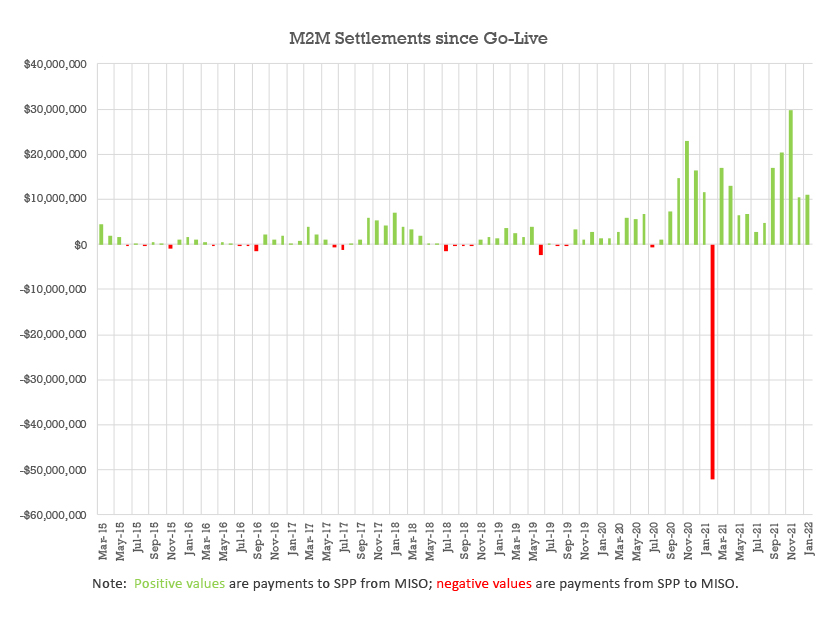Leaders of an SPP task force charged with designing and developing a consolidated transmission planning process and associated cost-sharing mechanism said last week they will wait until the generator interconnection queue’s backlog has been cleared before building the models for the process.
Staff told the Seams Advisory Group Wednesday that they expect it will take two years to get consolidated planning processes approved, with the first study being produced in 2026 at the earliest.
“We want to get queue clear before beginning the consolidated process,” SPP’s Kelsey Allen said. “It’s very hard to coordinate across the various study processes.”
The RTO’s queue backlog dates to 2017 and includes nearly 100 GW of IC requests, as of November. Renewables and storage account for all the potential projects, with a bit more than 6 GW of thermal requests. FERC in January approved SPP’s plan to clean up the backlog by 2024. (See “GI Backlog Plan Approved,” FERC Denies Co-ops’ $79M Complaint vs. SPP.)
The Consolidated Planning Process Task Force, created last year by the SPP board, has held a couple of education sessions and laid out a high-level work plan, said SPP’s Sunny Raheem, who is chairing the task force. Over the next few years, he said, the group plans to write as many policies as it can and build out technical requirements.
The task force will coordinate with and gather input from affected stakeholder groups in proposing methodologies, approaches, assumptions, parameters, criteria, data requirements and/or outcomes for successful consolidated planning design, implementation and approval.
“Sounds like job security to me,” joked American Electric Power’s Jim Jacoby, the SAG’s chair.
The meeting was the first in-person stakeholder meeting at SPP’s corporate campus in Little Rock, Ark., since the onset of the pandemic.
SPP, MISO to Set Joint Stakeholder Meetings
SPP and MISO staff are planning a series of stakeholder meetings over the next four to six months as they work on a cost-allocation methodology for their joint targeted interconnection queue (JTIQ) study.
The final study report is comprised of seven projects at a total cost of about $1.65 billion. If approved, the projects are projected to resolve 48 reliability constraints and deliver about $724 million in adjusted production costs savings to MISO and $247 million to SPP. (See MISO, SPP Finalize JTIQ Results with MISO Tx Duplicates.)
However, MISO has included two of those projects in its first tranche of long-range transmission projects, raising questions about how that affects the JTIQ’s portfolio.
“That’s one of the first things we have to work out in the upcoming stakeholder meetings,” SPP’s Neil Robertson said. “It does change the complexion of how cost allocation will be approached. …That was one of the primary objectives of [the JTIQ study].”
The stakeholder meetings are expected to be scheduled later this week.
SPP’s M2M Settlements Exceed $250M
SPP accrued almost $7.9 million in market-to-market (M2M) settlements from MISO during January, staff told the SAG, pushing the amount MISO owes its neighbor for congestion to nearly $255 million.
Permanent and temporary flowgates were binding for 1,812 hours during the month. The two grid operators exchange settlements for redispatch based on the non-monitoring RTO’s market flow in relation to firm-flow entitlements.
It was the 11th straight month M2M settlements have accrued in SPP’s favor, and the 26th time in the last 28 months. The grid operators began the process in March 2015.




